No matter who you are and no matter what kind of a homesteader you are, you should never limit yourself to just one source of income, because you never know what the future holds for you.
The problem here is that when searching for a new source of money, you also need to keep in mind that you will need to take care of the animal and more importantly, you will need to learn everything there is to know about owning that animal in the first place.
So, for today we will be discussing why geese can quickly fit into that role, alongside everything else that they can be used for.
For example, did you know that geese can make for wonderful little pets, that their meat is considered to be delicious and their eggs can be prepared in a variety of ways?
That’s just the starting pack that we’ve got in store for you, and more information is coming your way, starting off with:
The Geese Owner Experience

What many people don’t realize about owning geese is that they’re very different from any other birds you could own. So, needless to say, if you’ve never owned a geese before, you’re in for a treat because it won’t be easy to get accustomed to them at first.
This is why we recommend that you start off with a few large geese at once, never go for a full-sized flock because if you do, you can easily get overwhelmed.
They will soon start laying their eggs, which in itself is great because with each egg, they provide you with a pretty good source of food and potentially income right away.
You can either keep them at a free range or you can allow them to roam around your yard, as long as you also have a six-foot chicken wire fence.
If you do plan on hatching out the eggs you will have to invest in a roof too, so that the babies never have to worry about any predator birds swooping them away.
Hawks for example are notorious for killing dozens of babies at once, so always make sure to keep them under the roofs to prevent any tragedies from happening.
The great thing about geese though is that they will usually just find their very own little spot where they’ll scoop out a shallow hole and lay their eggs in.
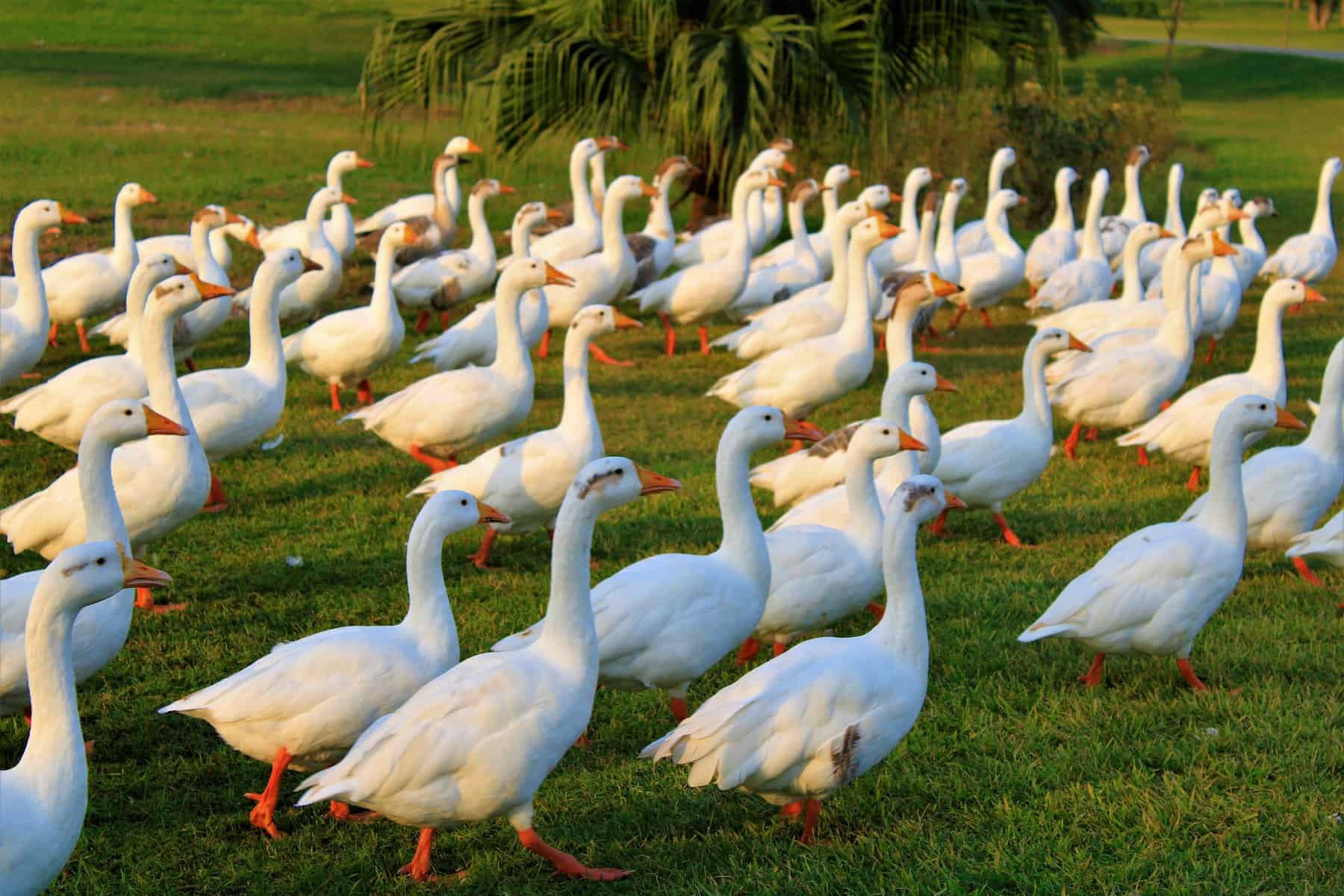
One thing that we need to mention here is that they tend to lay their eggs and settle on them at nighttime, so don’t be afraid when you realize the fact that they never sit on them during the day.
They tend to change their patterns a bit as time moves on though, so you’re more and more likely to see them sit on their eggs even during daytime.
If you do plan on hatching the eggs out, you should know that the process itself takes around four weeks or so, and you get one gosling per egg.
Do keep in mind that a single goose can have as many as four to six goslings per month, which in itself is quite horrible if you have no way to take care of them. So, make sure you have a decently sized list of clients before you start your business.
Oh, and there’s always the chance that your egg won’t hatch out, which in itself is not too bad, until you realize the fact that spoiled eggs smell absolutely horrid when you crack them open.
So, make sure to keep a close eye and a bunch of nose plugs at the ready whenever you check the eggs for yourself.
The Gosling Owner Experience
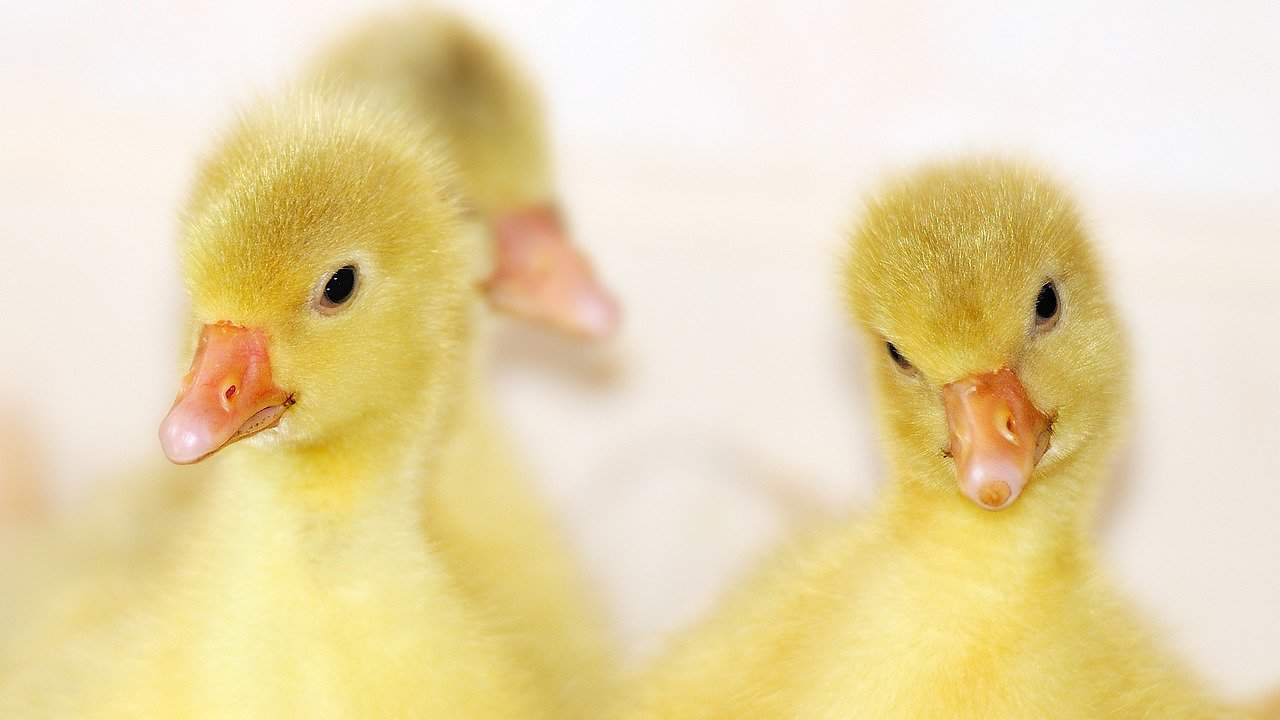
The term “gosling”, in case you didn’t realize by now, simply refers to any young baby geese. They are usually covered from head to toe in fluffy and soft feathers and are fully incapable of flight.
They forage around on their own and they’re fully capable of swimming and walking as soon as they hatch.
The term refers to both the male and the female goose, and it stops being used when the juvenile geese begin to show flight feathers and adult plumage.
But regardless, if you want to sell goslings, you’ll be happy to hear that they usually go for around $3.00 a piece or so, which means that again, you can guarantee a pretty good second income with as few as three to five goslings per month.
On top of that they are quite cute and soft to the touch, with each and every one of them having their own shade of yellow, white, blue or whatnot feathers on them.
The Goose Butchering Experience
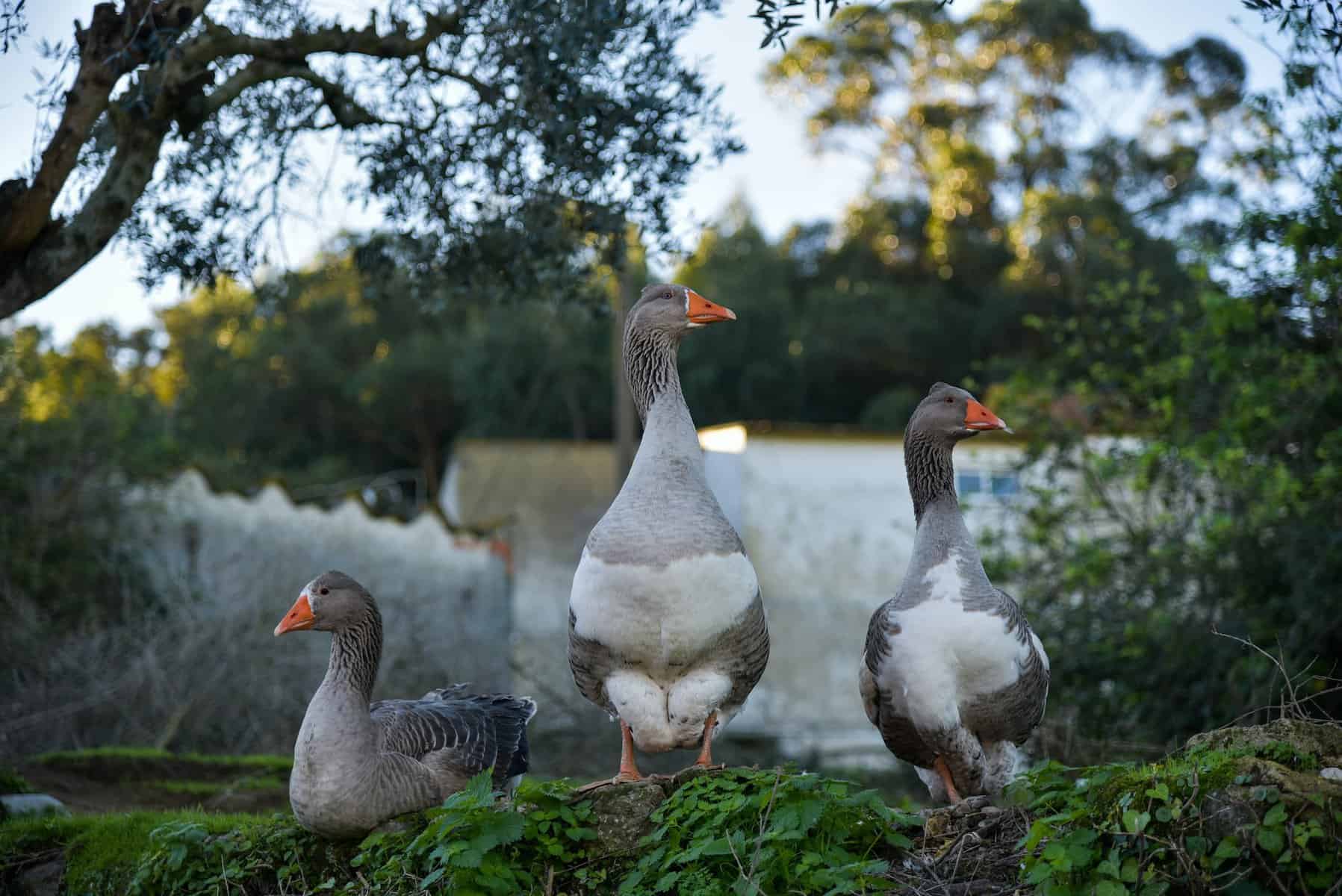
As soon as they mature and they reach a weight of around 15 to 30 pounds you can start the butchering and maybe the cooking part of the process.
Right around this moment we recommend that you feed them a lot of food and as many scraps as you can muster up. They can eat anything from cereal to dogfood, all the way to pretty much just random bits and pieces you may have around your household.
A few weeks before butchering we recommend you start adding in little molasses to their food, as that will quickly fatten them up. Also, geese tend to grow quite large, so make sure that you butcher them before they get too big for your oven.
If you want to sell this meat you will be happy to hear that you can get yourself $40-100 per geese, which in itself does add up quite a lot if you butcher them in the dozens at once.
You can also use the downy feathers after you butcher the geese, so don’t throw them away just yet. There are plenty of crafters that will pay a lot to stuff pillows, make earrings and whatnot, so you never know when someone will spring up and give you a really good deal.
What Do Goose Eggs Look Like?
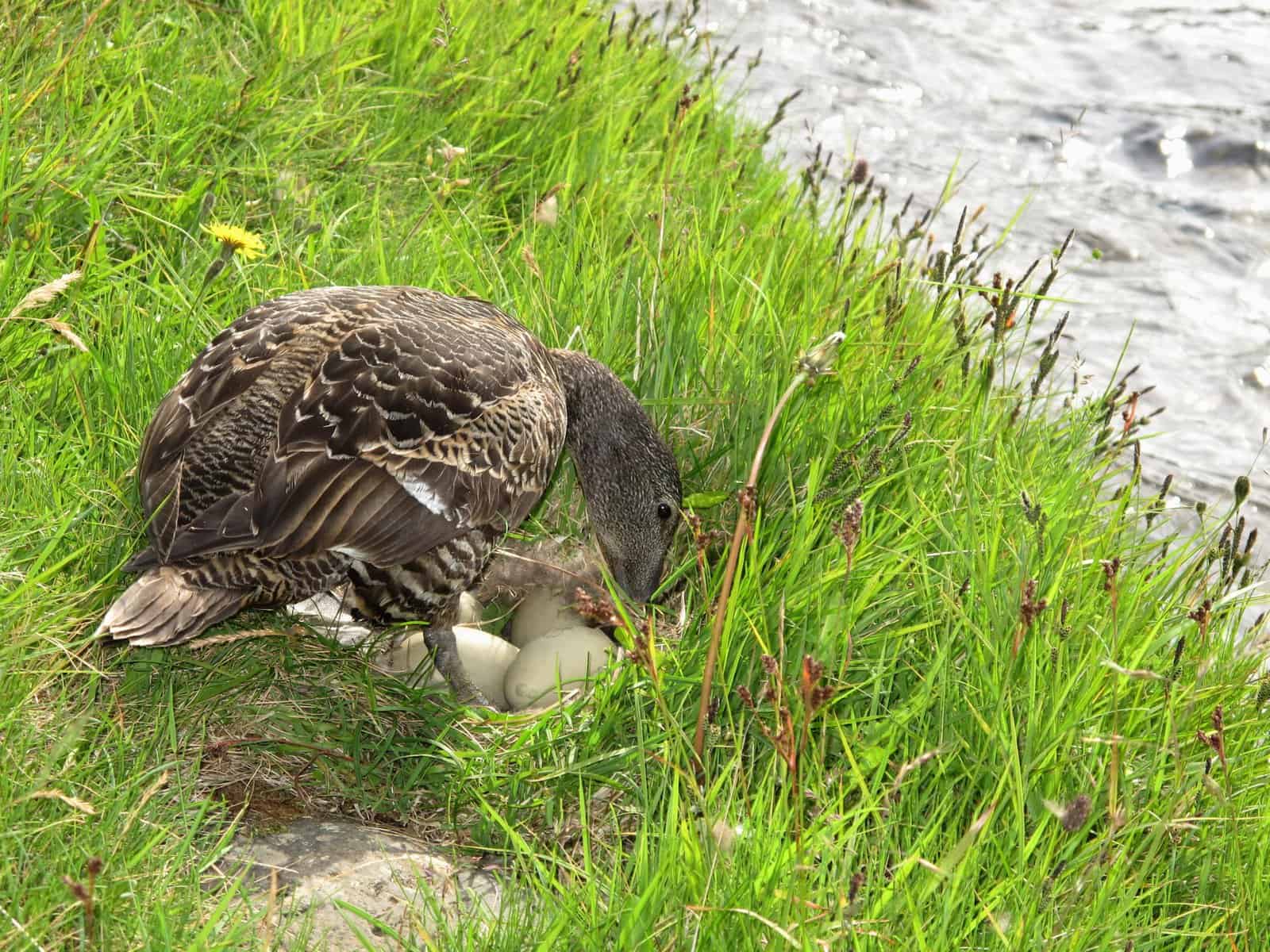
Now that you know what the meat and the actual geese and goslings can offer you, how about we dive a bit deeper into the eggs as we showcase why they are such a great source of income.
Goose eggs are known for being some of the largest eggs you’ll ever see. They are hard, thick and white shelled, while also being ovoid-shaped.
Most geese can lay anywhere between 40 to 50 eggs a year, which in itself is a lot less than what most quails and chicken can do, since they usually lay as many as one to two eggs a day.
Goose eggs are also known for having a bigger yolk-egg white ratio, which can also be seen with duck eggs.
As such, the nutritional value of the geese egg is very different from other egg varieties on top of also having a different taste altogether.
How Big Are Geese Eggs?
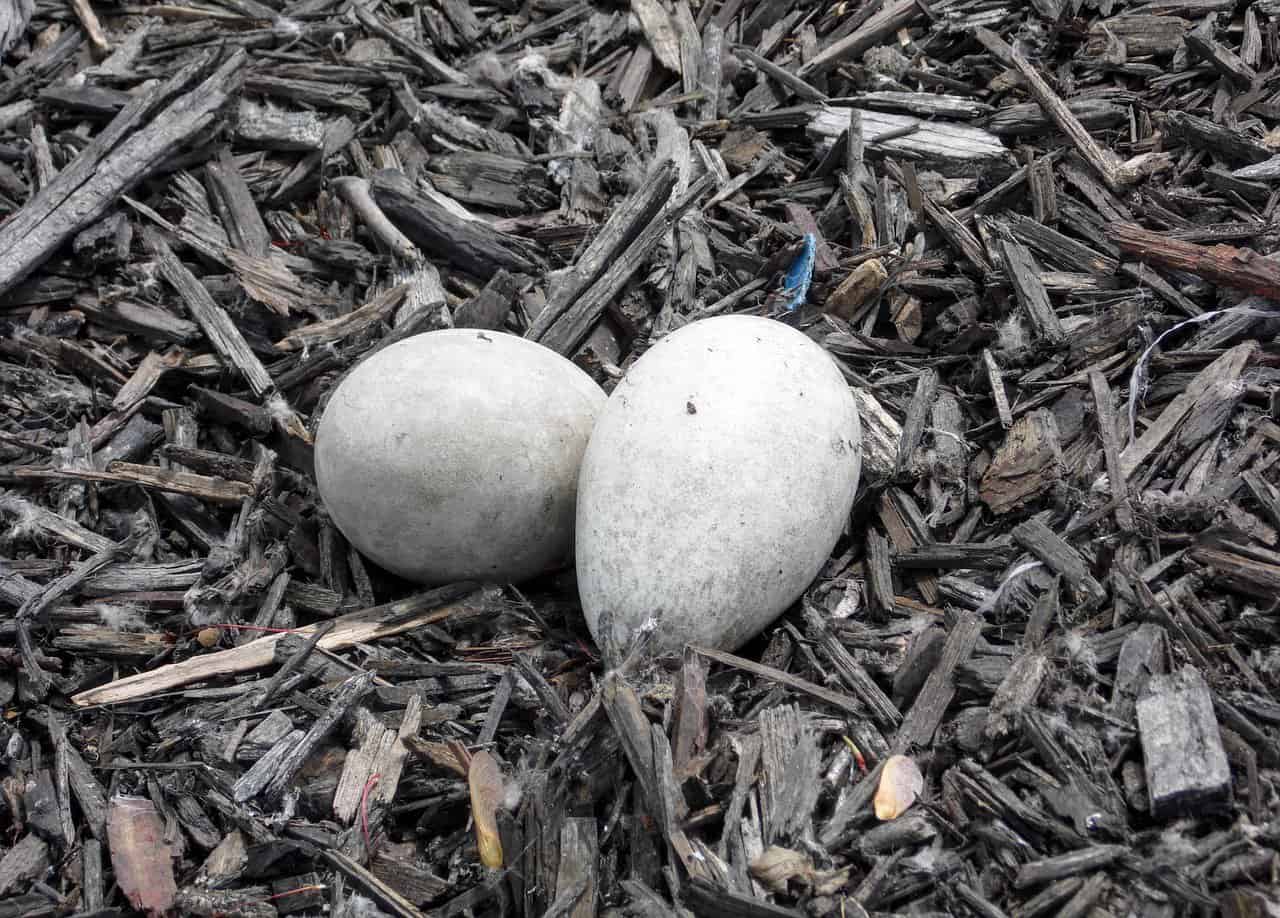
Most people assume that goose eggs are around as large as duck eggs, since there are so many similarities between the two.
While there are a lot of similarities though, size isn’t one of them, as goose eggs are way larger than chicken, duck or even turkey eggs.
Most chicken eggs weigh in at around 50g, while duck eggs weigh in 70g each. Turkey eggs rake up to 79g while geese eggs weigh up to 144g.
So, just for reference’s sake, most of us have held a chicken egg in our palm before, so you can visualize quite quickly how large a geese egg is when you picture the fact that goose eggs are three times that.
While that is astonishing to say the least, do try to remember the fact that while most of them weigh in at around 144g, you will also have the occasional monster geese egg, which weighs in at around 170g each.
Younger geese start laying smaller eggs at first, as you can probably expect based on their relatively small size, and as they grow older their eggs also grow larger and larger. Geese also usually start laying eggs around April all the way up until September.
What Do Goose Eggs Taste Like?
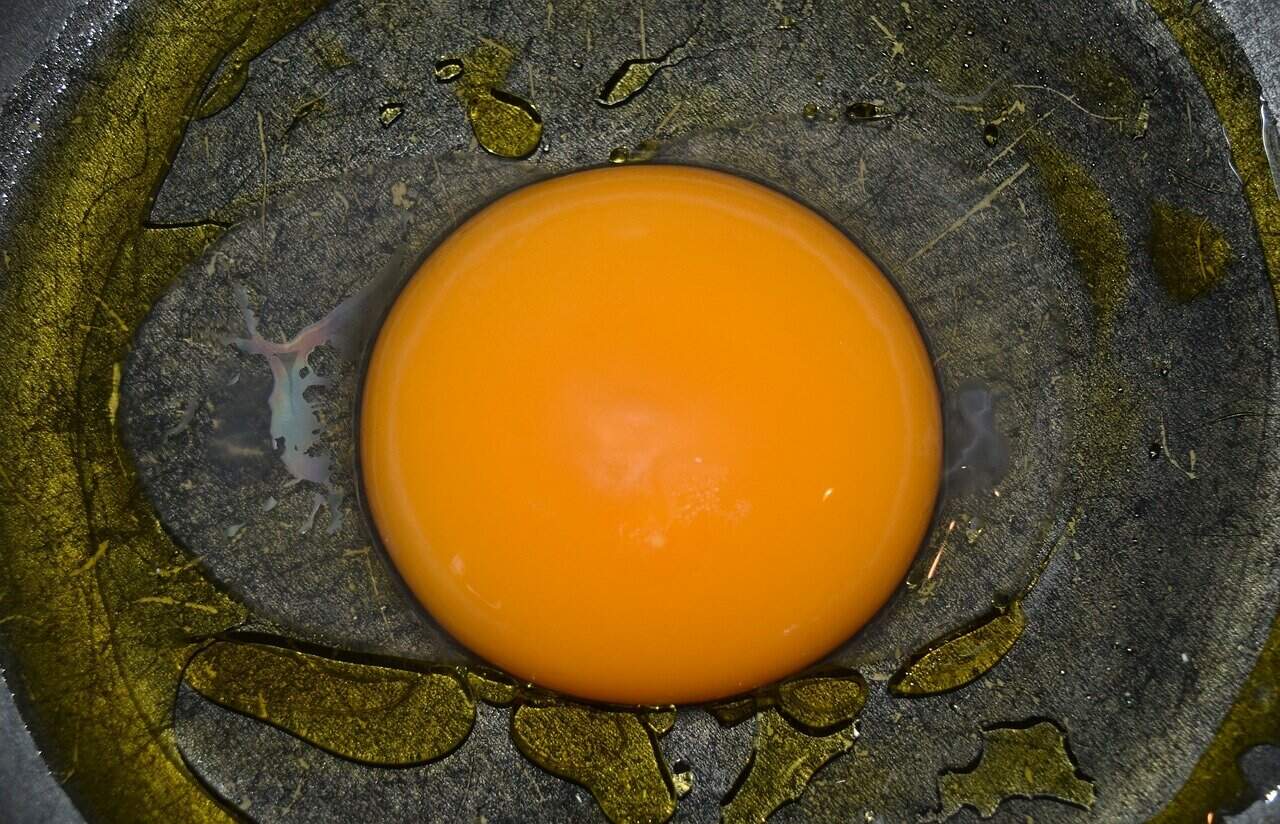
As mentioned previously, when it comes to the taste, goose eggs are very similar to duck eggs, which is mostly because they have a similar case of more yolk than egg white. This gives them a very distinct flavor.
But at the same time, goose eggs are way fattier, and as such they tend to be a bit creamier thanks to the massive yolk they have inside, which is where all of the fat is stored in.
On top of that, geese tend to have a different diet than chickens, which is why their eggs taste differently altogether.
But, depending on how you actually cook the eggs, you may find yourself with an omelet that is virtually undistinguishable from the chicken egg omelet.
At the same time, a fried, baked or hard-boiled goose egg will have a completely different flavor and taste than a chicken egg would thanks to the fact that it is the fattier product.
Goose Egg Nutritional Value
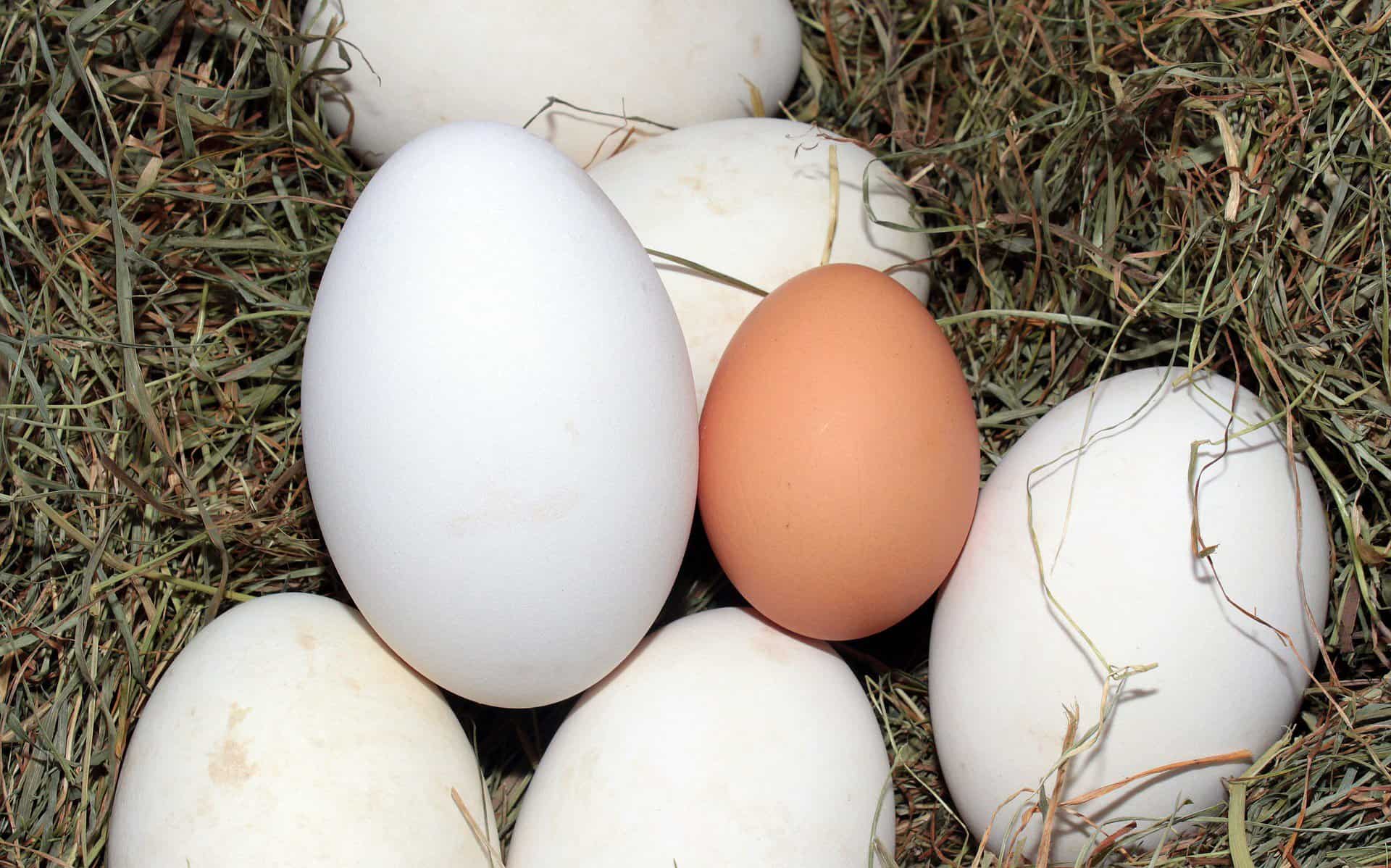
Goose eggs are considered to be the superior product when compared to all of the other domesticated fowls due to their size, higher yolk to egg white ratio and of course, the diet that most geese consume throughout their lives.
They are higher in cholesterol, Omega-3 fatty acids and fa, while also having more protein and calories than any other domesticated fowl and more than a handful of iron, phosphorus, vitamins A, B9 and B12.
How to Cook and Eat Goose Eggs
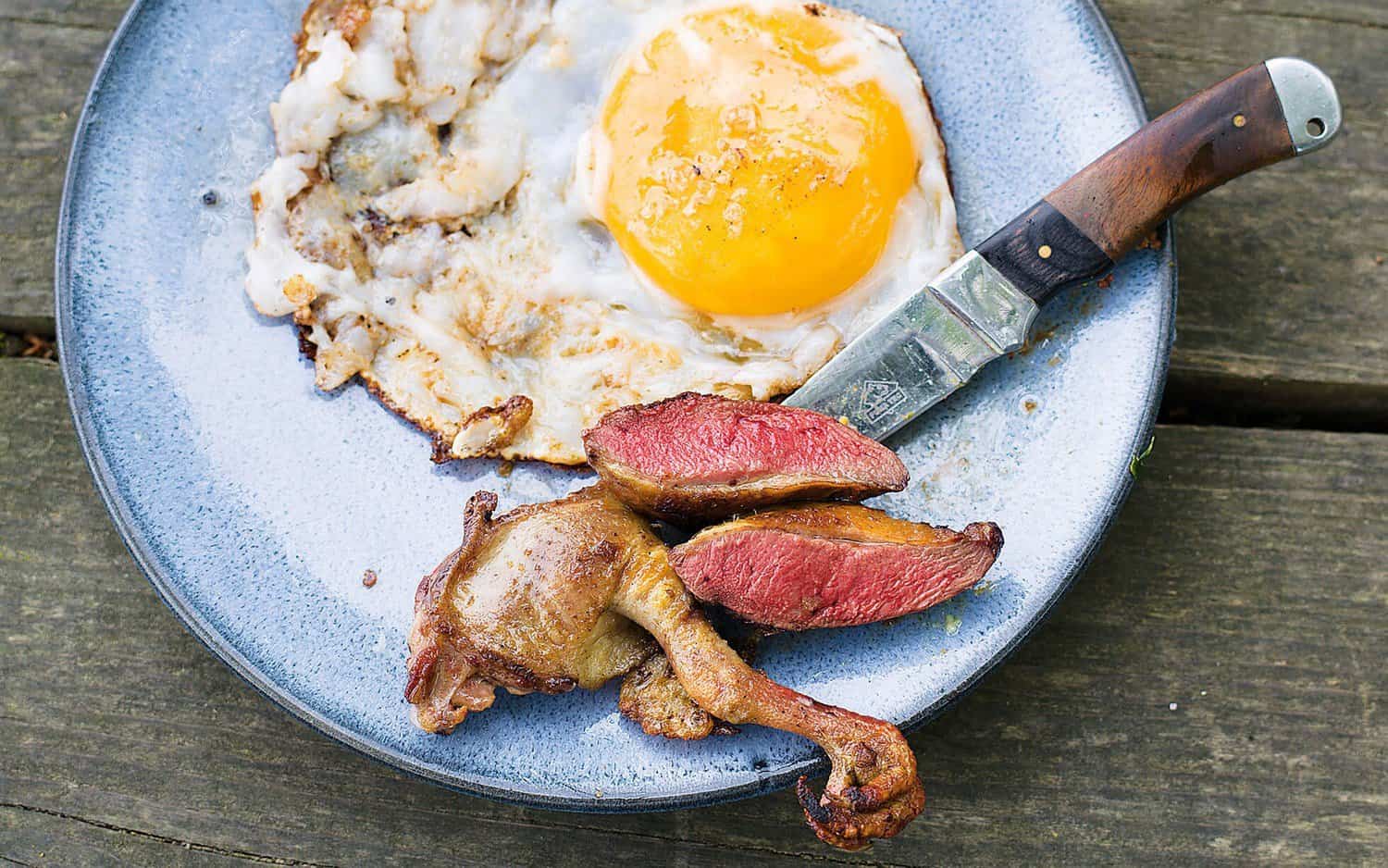
The thing that you need to know about eggs in general, is that you can pretty much cook them any way you want to. We all have different taste and preferences after all, so you may choose to cook them any way you see fit.
So, when cooking them just make sure that you do what you would with any other eggs in the fridge. You wash them down, store them for long-term use and remember to wash your hands before and after you take new eggs with you.
Especially if you do happen to be handling raw foods such as salad greens or fruits, always make sure to clean them and your hands properly.
At the same time, due to their larger size, you may want to substitute one goose egg for three chicken eggs, so if the recipe is asking for six chicken eggs, just put down two goose eggs and you’ll be stellar.
Goose Eggs Vs. Chicken Eggs
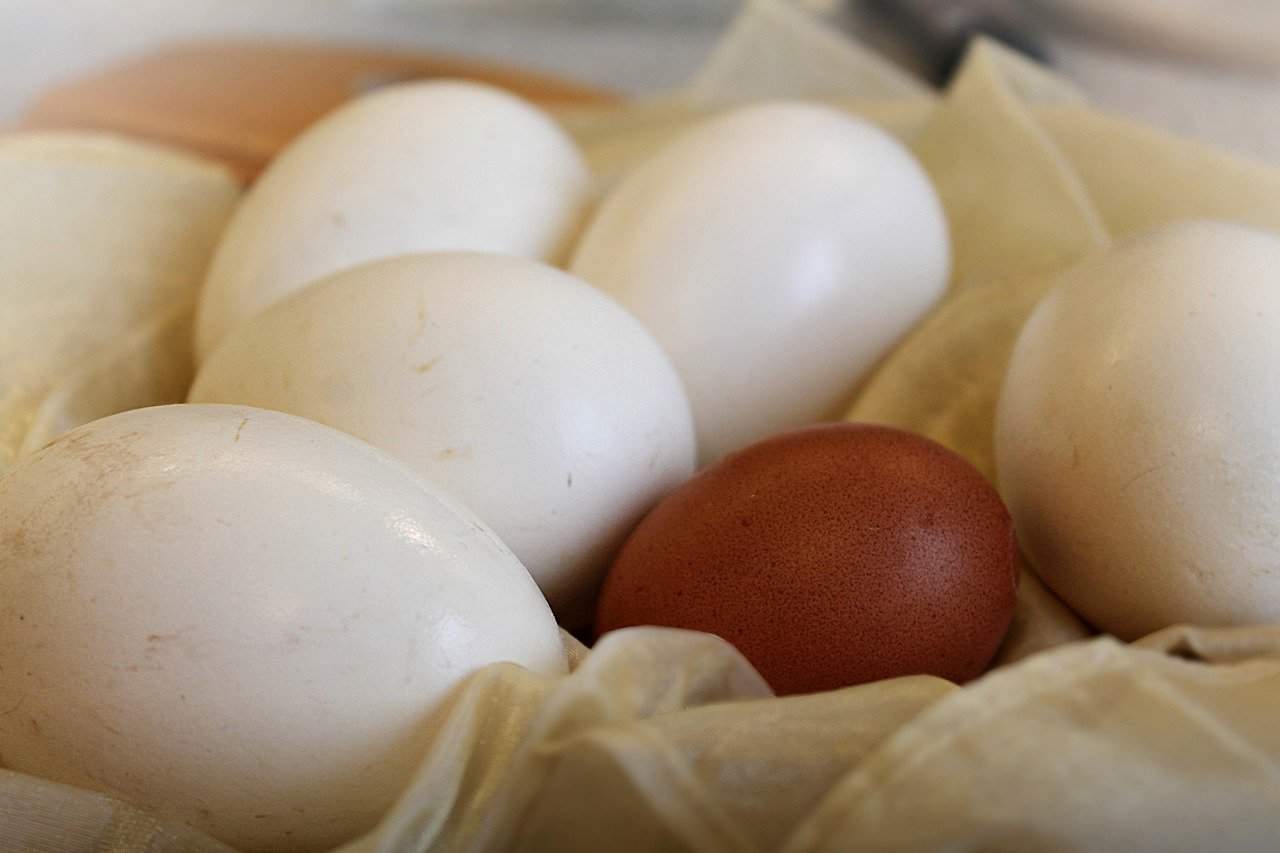
So, here are the main differences between the two and more importantly a pretty easy to follow guide depicting which option is superior to the other:
First and foremost, as mentioned previously, goose eggs are three times larger than chicken eggs. On top of that, their shell is also harder to crack, so you will need to use a bit more force to open it up.
But this also works in the eggs’ favor as the goose egg will last longer in the fridge, which is around six or so months in total. On top of that, goose eggs are always white while chicken eggs can be either brown or white.
Second of all, as soon as you crack open the eggs you should be able to tell the goose egg’s yolk is firmer than that of the chicken. This ism again, because of the higher yolk to egg white ratio.
Third of all, the nutritional values of the goose egg are way different than those of the chicken egg, since they are so much larger in the first place. Most chicken eggs for example carry around 72 calories while the average goose egg has around 266 calories.
At the same time, we need to mention the cholesterol, as the goose egg has a lot more of it than the chicken egg, respectively 1,227mg. compared to 186mg.
According to most doctors, you should consume around 300mg. of cholesterol per day, which should tell you right off the bat how many goose eggs you can actually consume on a daily basis before your cholesterol spikes up to dangerous levels.
At the same time, a goose egg has around 19.97g of protein while a chicken egg has around 6.23g, which makes both of them incredible sources of protein. This is made all the better by the fact that both of them have all of the amino acids your body could ever ask for.
Last but not least we would like to mention the difference when it comes to the cost alone, as goose eggs tend to be way more expensive, costing you at the very least $3 per egg.
That in itself is quite expensive, considering the fact that you can actually get your hands on a whole chicken egg carton for as little as $2 or so.
But which one is better after all? Well, it all depends on several key factors, including personal bias, budget and health implications.
So, if you have the financial capacity to get them and you really want to, and you don’t have anything against its fattier nutritional value alongside its incredibly high cholesterol, you should definitely go for goose eggs.
If not, you can always just stick to the classics and just pay less and get more of the same that you’ve gotten accustomed to by now, aka chicken eggs. After all, if it isn’t broken don’t fix it, right?
Fun Facts About Goose Eggs
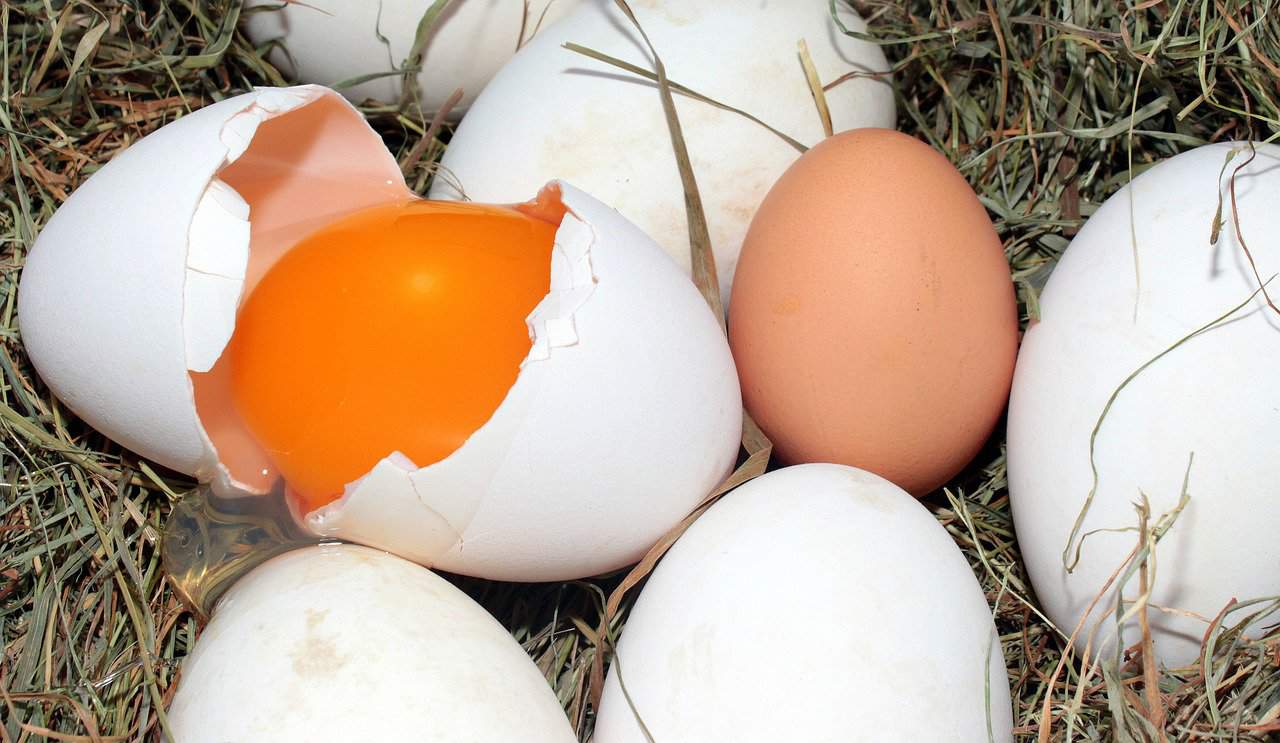
Now that we know which of the two is better, how about we give you a brief rundown of the most fascinating fun acts we could find about goose eggs, starting off with:
- Female geese tend to start laying eggs when they turn 9 months old
- Their eggs are pure white, they never lay any brown or speckled eggs
- These eggs can weigh anywhere between 4 ¼ and 6 ½ ounces
- The shell of the egg makes up 12% of its total weight, while the egg white makes up 57% of it and the yolk 31%
- Geese tend to lay their eggs in a straw nest, and as soon as they’re done and the daylight starts touching them, they cover them up with straws and hide them
- Goose eggs can take as long as 28 to 35 days to fully hatch
- While incubators can still work, mother geese will always be more successful in raising their goose eggs
Downsides to Owning Geese
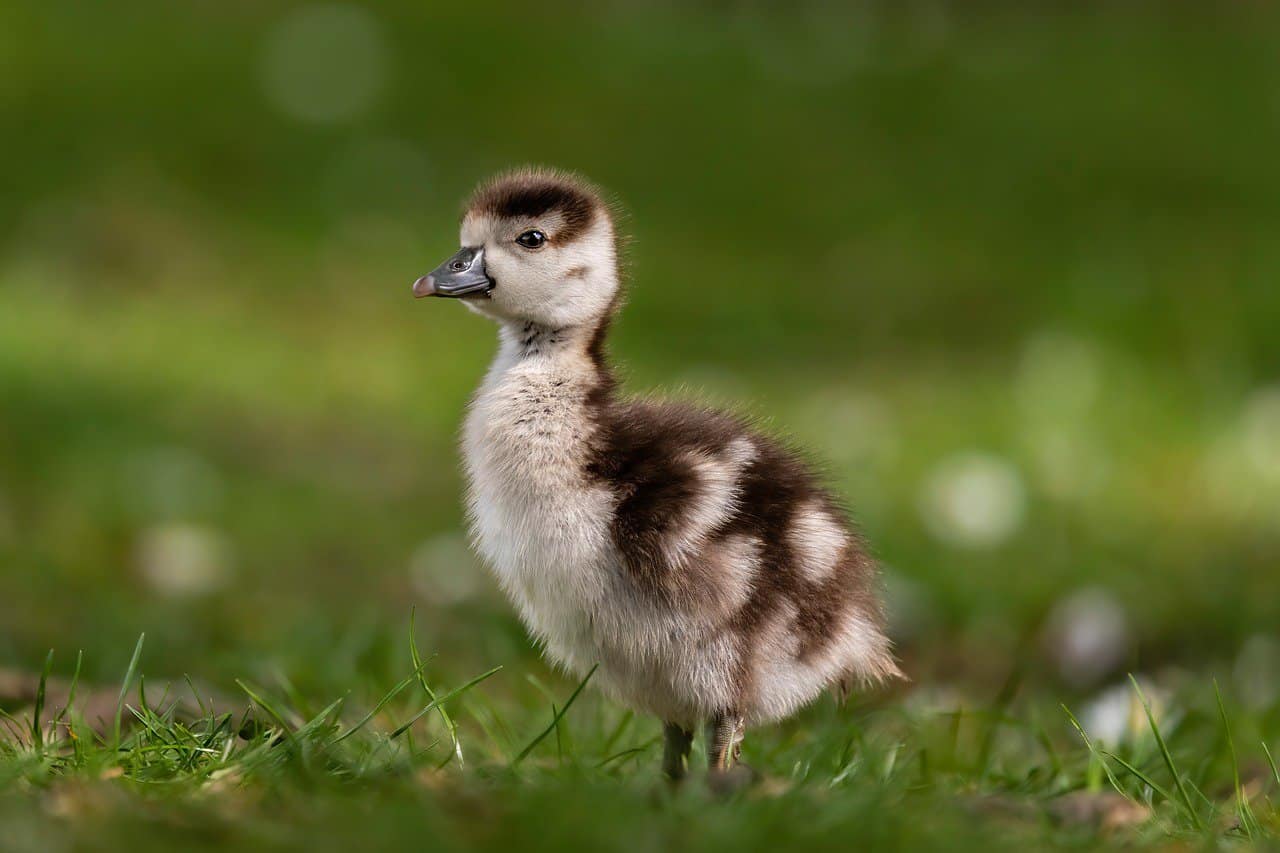
Last but not least we would like to cover the negative side of owning geese. While there aren’t a lot of inherently bad parts when it comes to owning geese, there are a few heads up we can offer you, including the following:
They poop so much and they squirt it everywhere, to the point where you’ll need to clean up your yard on a daily basis if you don’t want to literally be covered in it.
This in itself can become an income though sooner or later as this manure is very useful for growing greeneries.
But the second negative side of owning geese isn’t going to work its way into being a positive anytime soon, since we’re specifically talking about the fact that geese are known for being very aggressive.
They often times become aggressive around their eggs or goslings, because they believe that you are there to hurt them, which is why they will often times attack you for no real reason whatsoever.
While the chances of them actually hurting a grown adult are slim, children can be injured quite severely if there are no parents around to keep them away from the little beaked monsters.
Regardless, if you keep your distance from their goslings and their eggs you shouldn’t have to worry about them being too violent.
Conclusion
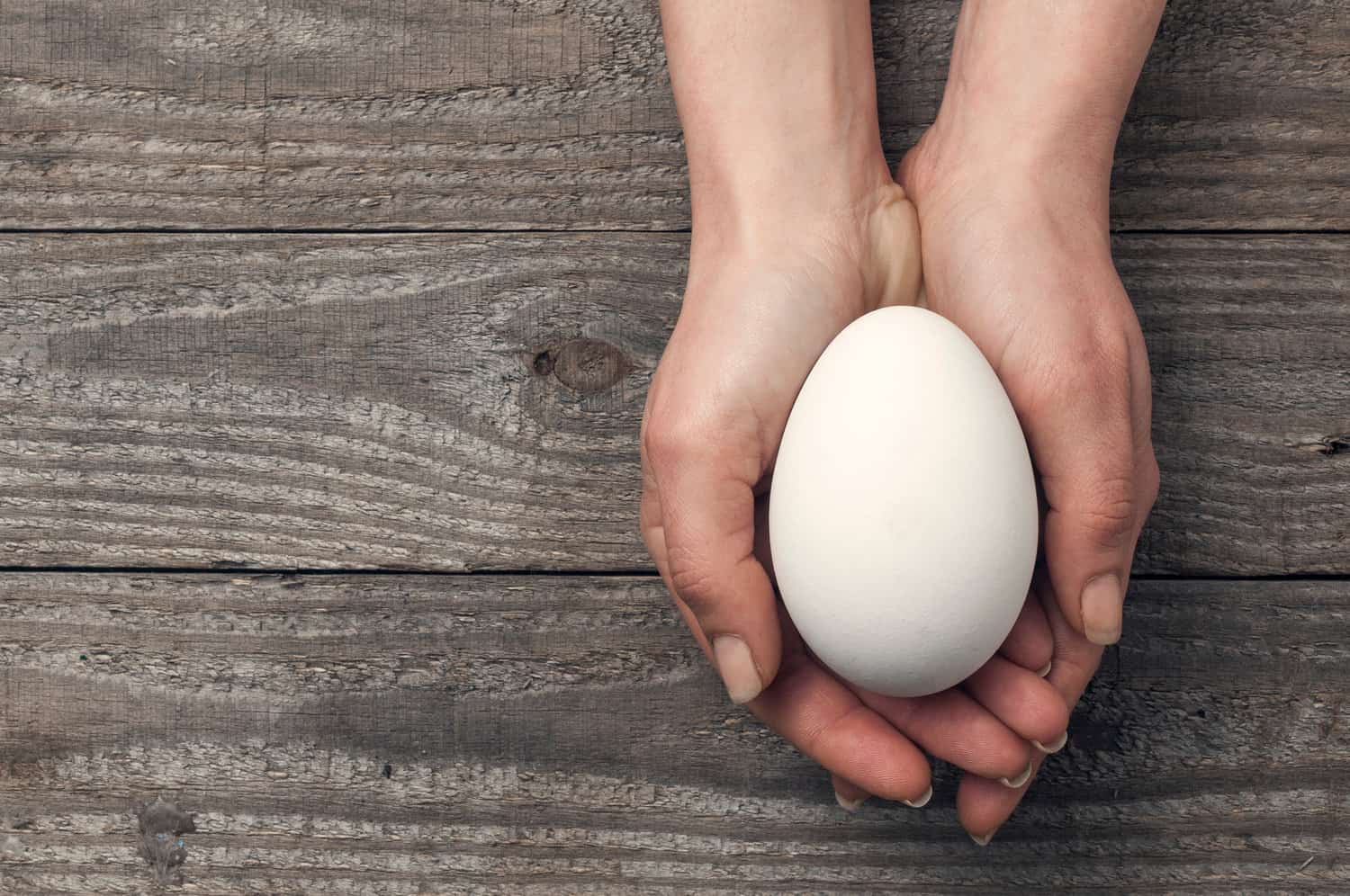
So, that’s all there is to know about geese, their goslings and their eggs.
While they may be different from any other eggs or fowl babies out there, that shouldn’t deter you from considering them as a secondary source of income or just an extra ingredient in the dish.
Contents
- The Geese Owner Experience
- The Gosling Owner Experience
- The Goose Butchering Experience
- What Do Goose Eggs Look Like?
- How Big Are Geese Eggs?
- What Do Goose Eggs Taste Like?
- Goose Egg Nutritional Value
- How to Cook and Eat Goose Eggs
- Goose Eggs Vs. Chicken Eggs
- Fun Facts About Goose Eggs
- Downsides to Owning Geese

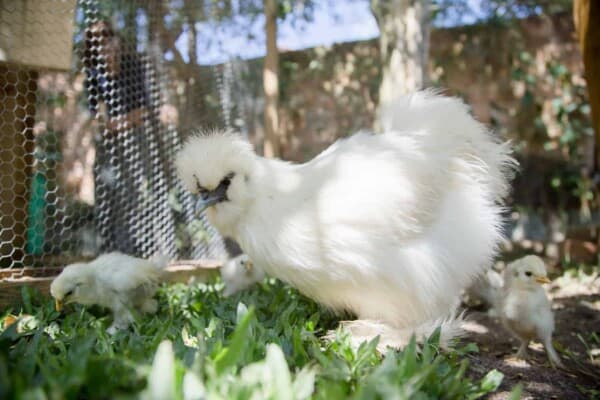
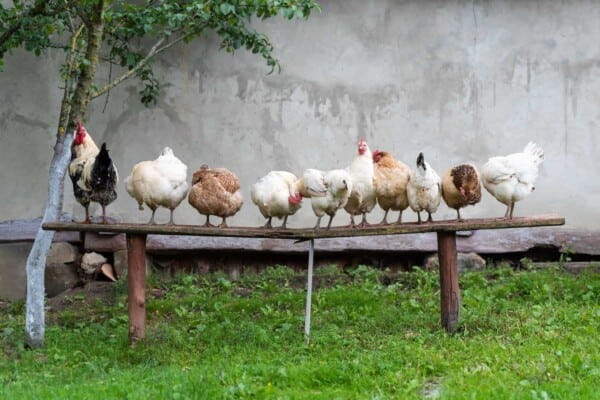

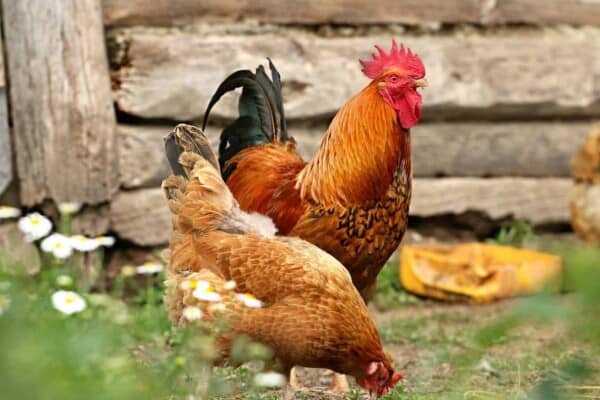
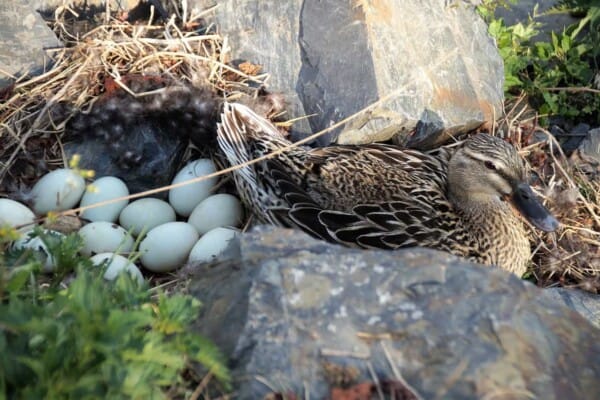

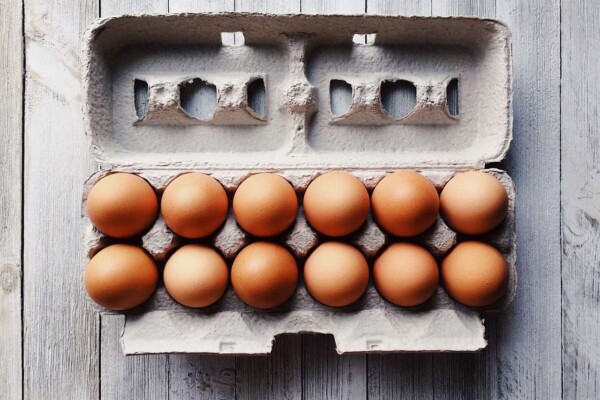
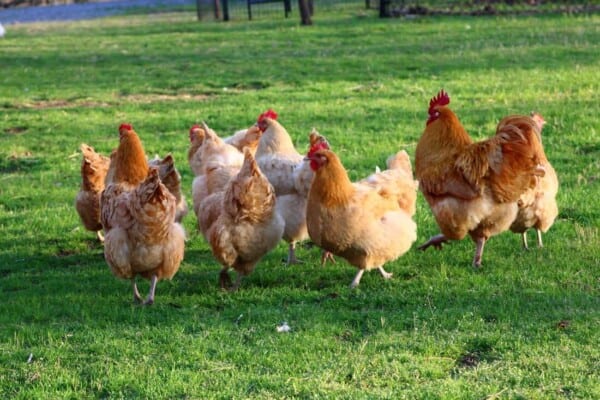
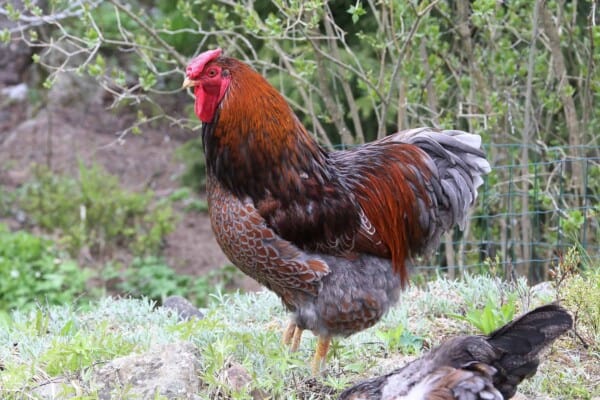
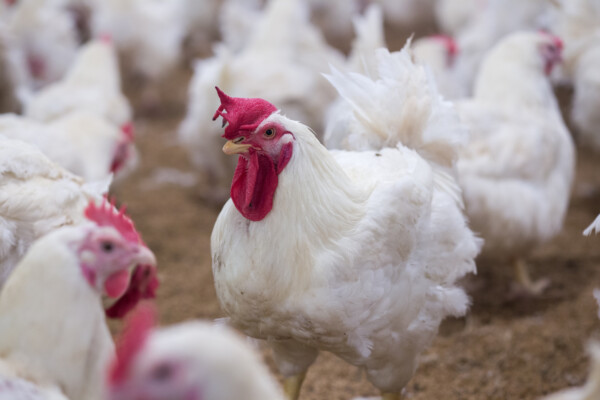

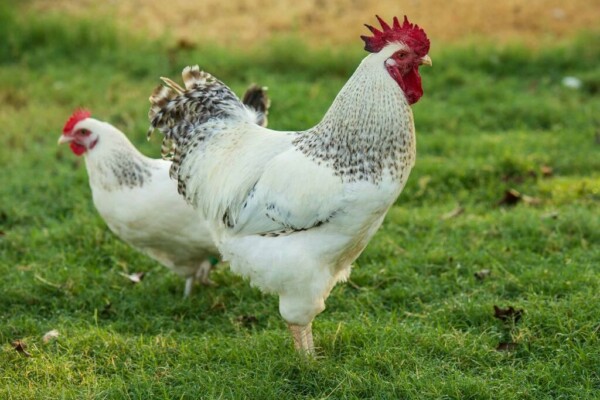
There is a big difference between a wandering goose egg and a farm goose egg. Thanks for your article.
Good info in this article.
We have a lone Chinese white female goose with a dozen chickens. An adult goose bite can be very painful. Ouch! The strength with which they bite can severely bruise your skin even through a heavy pair of blue jeans. When children are nearby, be very cautious.